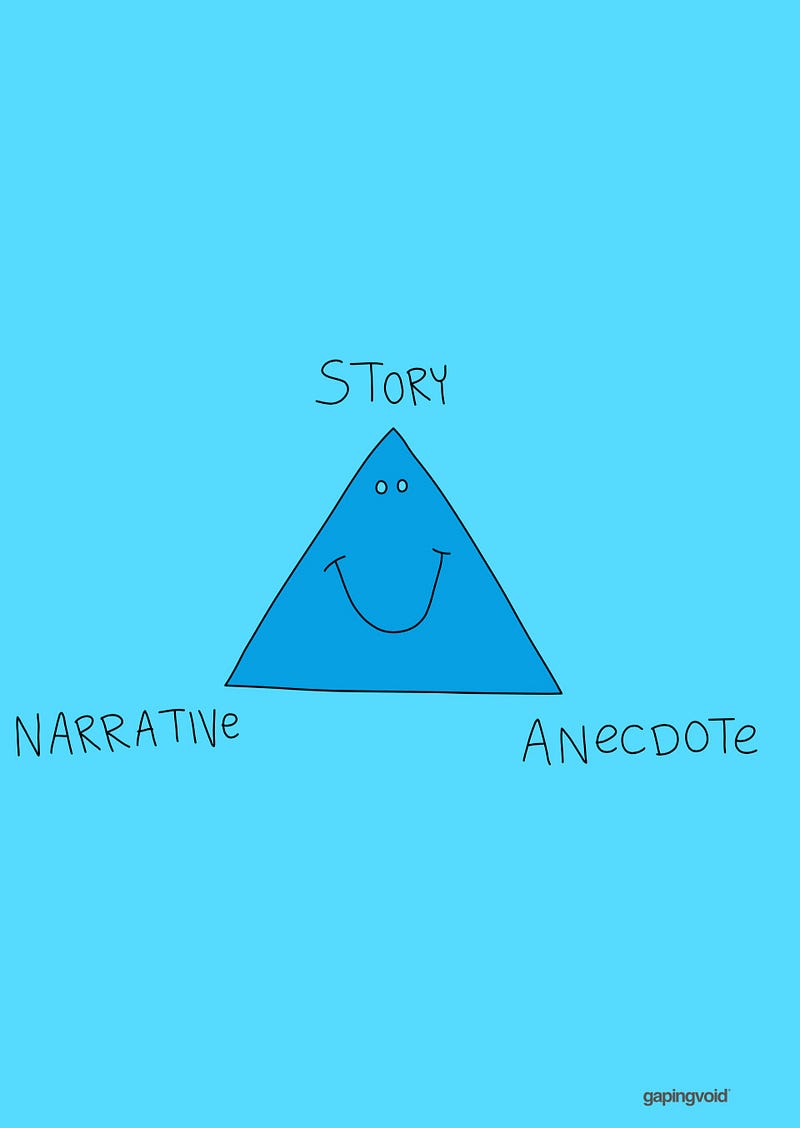
When it comes to storytelling, we make it too complicated. We hear stories, narratives and anecdotes all the time, but we don’t turn around and say, ‘ah, that’s a story I am listening to or oh no, that’s a narrative or anecdote.
We just are engaged by what we’re listening to and we connect the dots in our brains in relation to what we have experienced previously. It’s almost impossible to create new neural pathways without referencing older neurological pathways that already exist.
For example whilst you are reading this, you in theory are creating a new neural pathway just with this short article. However the article can not exist on it’s own because you would not have any way of bringing it up from your memory. It has to be connected to something else that exists in your brain. You already have a neural pathway established which knows something about storytelling. For example when your mother or father told you a story, it’s likely that you will be able to recall what one of those stories were. Therefore you have some beliefs and opinions about stories already established. The neural pathways may be a pit rusty, but because you are receiving potentially new information about storytelling, you brain will attach the new information, the new neural pathway, to the old rusty pathway and refresh that part as well.
So now you have created more relationships to do with storytelling in your brain, which means whenever you hear, read or see something that mentioned storytelling you will be able to recall the whole lot in one go.
Clever or what?
But it’s the job of the speaker, writer, presenter to invoke this inside of you.
Without either a story, narrative or anecdote, which for me are all the same, you don’t have a chance to make the connections and therefore it will be totally forgettable.
Happy storytelling!